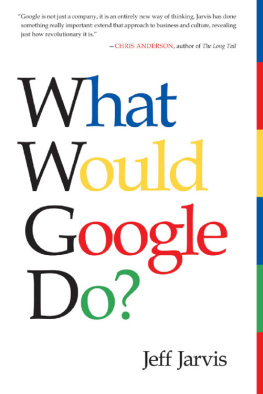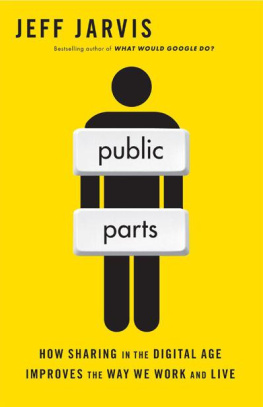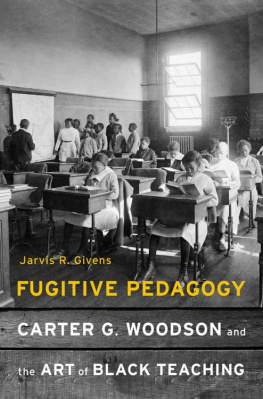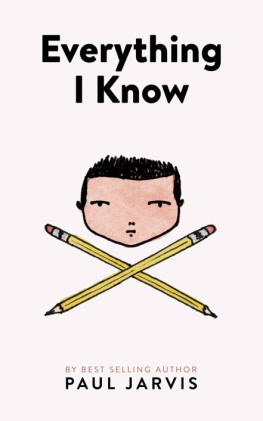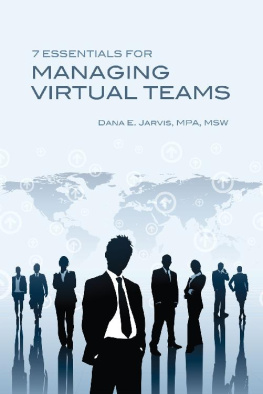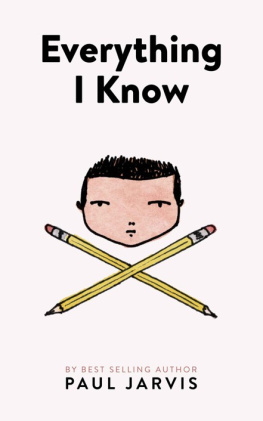Jeff Jarvis - What Would Google Do?
Here you can read online Jeff Jarvis - What Would Google Do? full text of the book (entire story) in english for free. Download pdf and epub, get meaning, cover and reviews about this ebook. year: 2009, publisher: HarperLuxe, genre: Computer. Description of the work, (preface) as well as reviews are available. Best literature library LitArk.com created for fans of good reading and offers a wide selection of genres:
Romance novel
Science fiction
Adventure
Detective
Science
History
Home and family
Prose
Art
Politics
Computer
Non-fiction
Religion
Business
Children
Humor
Choose a favorite category and find really read worthwhile books. Enjoy immersion in the world of imagination, feel the emotions of the characters or learn something new for yourself, make an fascinating discovery.
- Book:What Would Google Do?
- Author:
- Publisher:HarperLuxe
- Genre:
- Year:2009
- Rating:5 / 5
- Favourites:Add to favourites
- Your mark:
- 100
- 1
- 2
- 3
- 4
- 5
What Would Google Do?: summary, description and annotation
We offer to read an annotation, description, summary or preface (depends on what the author of the book "What Would Google Do?" wrote himself). If you haven't found the necessary information about the book — write in the comments, we will try to find it.
What Would Google Do? — read online for free the complete book (whole text) full work
Below is the text of the book, divided by pages. System saving the place of the last page read, allows you to conveniently read the book "What Would Google Do?" online for free, without having to search again every time where you left off. Put a bookmark, and you can go to the page where you finished reading at any time.
Font size:
Interval:
Bookmark:

What Would Google Do?
Jeff Jarvis
For Tammy, Jake, and Julia
It seems as if no company, executive, or institution truly understands how to survive and prosper in the internet age.
Except Google.
So, faced with most any challenge today, it makes sense to ask: WWGD?
What would Google do?
In management, commerce, news, media,manufacturing, marketing, service industries, investing, politics,government, and even education and religion, answering that question isa key to navigating a world that has changed radically and forever.
That world is upside-down, inside-out, counterintuitive, and confusing.
Who could have imagined that a free classifi edservice could have had a profound and permanent effect on the entirenewspaper industry, that kids with cameras and internet connectionscould gather larger audiences than cable networks could, that lonerswith keyboards could bring down politicians and companies, and thatdropouts could build companies worth billions? They didnt do it bybreaking rules. They operate by new rules of a new age, among them:
Customers are now in charge. They can be heard around the globe and have an impact on huge institutions in an instant.
People can find each other anywhere and coalesce around youor against you.
The mass market is dead, replaced by the mass of niches.
Markets are conversations, decreed The Cluetrain Manifesto,the seminal work of the internet age, in 2000. That means the key skillin any organization today is no longer marketing but conversing.
We have shifted from an economy based on scarcityto one based on abundance. The control of products or distribution willno longer guarantee a premium and a profit.
Enabling customers to collaborate with youin creating, distributing, marketing, and supporting productsis what creates a premium in todays market.
The most successful enterprises today arenetworkswhich extract as little value as possible so they can grow asbig as possibleand the platforms on which those networks are built.
Owning pipelines, people, products, or even intellectual property is no longer the key to success. Openness is.
Googles found ers and executives understand thechange brought by the internet. That is why they are so successful andpowerful, running what Th e
Times of London dubbed the fastest growing companyin the history of the world. The same is true of a few disruptivecapitalists and quasi-capitalists such as Mark Zuckerberg, found er ofFacebook; Craig Newmark, who calls himself found er and customerservice representativeno jokeat craigslist; Jimmy Wales, cofound erof Wikipedia; Jeff Bezos, found er of Amazon; and Kevin Rose, creatorof Digg. They see a different world than the rest of us and makedifferent decisions as a result, decisions that make no sense under oldrules of old industries that are now blown apart thanks to these newways and new thinkers.
That is why the smart response to all this changeis to ask what these disrupterswhat Mark, Craig, Jimmy, Jeff, Kevin,and, of course, Googlewould do. Google generously shares its ownphilosophy on its web site, setting out the 10 things Google has foundto be true. They are
smart but obvious PowerPoint lines helpful inemployee indoctrination (especially necessary when your headcountexplodes by 50 percent in a yearto 16,000 at the end of 2007 and to20,000 before the end of the following year): Focus on the user andall else will follow, Google decrees. Its best to do one thingreally, really well.... Fast is better than slow.... You can makemoney without doing evil.... Theres always more information outthere.... The need for information crosses all borders....
These are useful, but they dont tell the entire story. Theres more to learn from watching Google.
The question I ask in the title is about thinkingin new ways, facing new challenges, solving problems with newsolutions, seeing new opportunities, and understanding a different wayto look at the structure of the economy and society. I try to see theworld as Google sees it, analyzing and deconstructing its success froma distance so we can apply what we learn to our own companies,institutions, and careers. Together, we will reverse-engineer Google.You can bring this same discipline to other competitors, companies, andleaders whose success you find puzzling but admirable. In fact, youmust.
Google is our model for thinking in new waysbecause it is so singularly successful. Hitwise, which measuresinternet traffi c, reported that Google had 71 percent share ofsearches in the United States and 87 percent in the United Kingdom in2008. With its acquisition of ad- serving company DoubleClick in 2008,Google controlled 69 percent of online ad serving, according toAttributor, and 24 percent of online ad revenue, according to IDC. Inthe U.K., Googles ad revenue grew past the largest single commercialTV entity, ITV, in 2008, and it is next expected to surpass the revenueof all British national newspapers combined. It is still exploding:Googles traffic in 2007 was up 22.4 percent in a year. Google nolonger says how many servers its runsestimates run into the millionsand it has stopped saying how many pages it monitors, but when itstarted in 1998, it indexed 26 million pages; by 2000, it tracked onebillion; and in mid-2008 it said it followed one trillion webaddresses. In 2007and again in 2008, says the Millward Brown BrandZ Top 100, Google was the number one brand in the world.
By contrast, Yahoo and AOL, each a former king ofthe online hill, are already has- beens. They operate under the oldrules. They control content and distribution and think they can owncustomers, relationships, and attention. They create destinations andhave the hubris to think customers should come to them. They spend ahuge proportion of their revenue on marketing to get those people thereand work hard to keep them there.
Yahoo! is the last old-media company.
Google is the fi rst post-media company. UnlikeYahoo, Google is not a portal. It is a network and a platform. Googlethinks in distributed ways.
It goes to the people. There are bits of Google spread all over the web.
About a third of Googles revenueexpected to total$20 billion in 2008is earned not at Google.com but at sites all overthe internet. Heres how they do it: The Google AdSense box on the homepage of my blog, Buzzmachine.com, makes me part of Googles empire.Google sends me money for those ads. Google sends me readers viasearch. Google benefi ts by showing those readers more of its ads,which it can make more relevant, effective, and profitable because itknows what my site is about. I invited Google in because Google helpsme do what I want to do.
I, in turn, help spread Google by putting its adson my page and by embedding its YouTube videos, Google Maps, and Googlesearch box on my blog. When I link to a page on the internet, I helpGoogle understand what that page is about and how popular it is. I makeGoogle smarter.
With our clicks and links, we all do. Google isclever enough to organize that knowledge and take advantage of it. Itexploits the wisdom of the crowd, and thereby respects us in the crowd.Google trusts us (well, most of us, except those damned spammersbutthen Google has ways to ferret out the evil few among us). Googlerealizes that we are individuals who live in an almost infiniteuniverse of small communities of interest, information, and geography.Google does not treat us as a mass. Google understands that the economyis made up of a mass of nichesthat small is the new big. Google doesnot see itself as a product. It is a service, a platform, a means ofenabling others that so far knows no limits.
As hard as it is to imagine today, Google couldfail. It could grow too gangly to operate efficiently (Ive heardrumblings from insiders that its getting harder to accomplish thingsquickly because the company is just so huge). It could grow so dominantthat government regulators try to break it up. In 2008, the U.S.Justice Department hired a top litigator to investigate Googles dealto serve ads on Yahoo and its dominance of the advertising market(though it should be noted that Google gained that position with theeager acquiescence of Yahoo, newspapers, and ad agencies). Google couldalso grow so big that it becomes hard to grow bigger; thats alreadybecoming the case. Google could lose our trust the moment it misusesthe data it has about us or decides to use our growing dependence on itas a chokehold to charge us (as cable companies, phone companies, andairlines do). It could lose its way or just screw up. When Gmail had arare moment of dysfunction, Google CEO Eric Schmidt reminded the world,Were not perfect.
Next pageFont size:
Interval:
Bookmark:
Similar books «What Would Google Do?»
Look at similar books to What Would Google Do?. We have selected literature similar in name and meaning in the hope of providing readers with more options to find new, interesting, not yet read works.
Discussion, reviews of the book What Would Google Do? and just readers' own opinions. Leave your comments, write what you think about the work, its meaning or the main characters. Specify what exactly you liked and what you didn't like, and why you think so.

